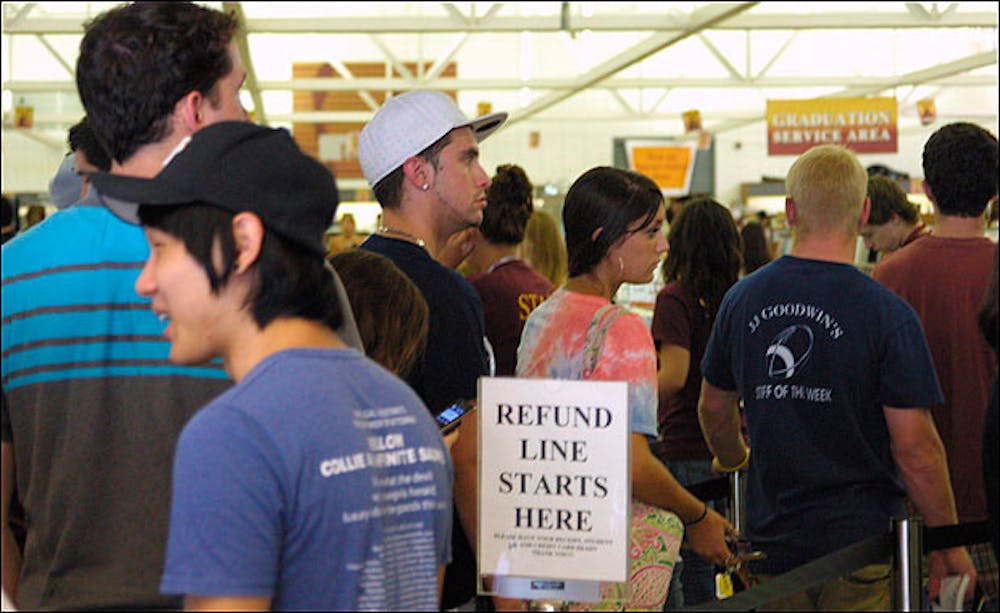Sales are down at ASU bookstores this semester, a possible indication that students are turning to Web sites and textbook-rental businesses instead.
With more textbook buying options available, and the nation’s economy pressing down on parents and students, the ASU bookstores have seen less business this year than usual, said Rob Meyers, assistant director at ASU’s Tempe bookstore.
“We are getting more people in the bookstore but they are buying less,” Meyers said. “With more competition, it is evident that sales will spread out.”
Meyers also said he foresees that ASU-bookstore sales will decline as more online options become available to students.
Some students are seeking a cheaper alternative to traditional bookstore prices by renting textbooks for a fraction of the publisher’s suggested retail price.
“This semester my books were $487 at [the] ASU [bookstore],” said social work sophomore Lorena Valle. “I am going to rent or buy online because it is almost half the price.”
One online business, Textbooks R Us, claims an average saving of 57 percent when compared to what students would spend on publishers’ suggested retail price at college bookstores.
The Web site allows users to search by ISBN number and choose from textbooks of varying prices and quality.
Kinesiology junior Doree Gardner said she thinks the alternative methods will catch on in the future, adding that some of her professors are now using electronic textbooks in the classroom.
“I bought all my books online last year,” she said. “What first attracted me was the fact that the books were cheaper. I did have to wait to for my books to be shipped, but I think it was worth the wait to save money.”
Other Web sites like Chegg.com and BookRenter.com offer students a textbook rental service.
Chegg claims to have saved students over $40,000 and is number one in online textbook rentals, according to its Web site.
“I have had people say they’ve saved $300 on books [using Chegg],” said Lauren Kristy, a Chegg promoter.
According to Chegg.com, the savings usually range from 65 to 85 percent of students’ total textbook costs.
Once students are finished with rented textbooks, they return them to the site.
Chegg provides a prepaid shipping label to return the books at no extra cost, and customers can also opt to purchase the book or extend the rental period.
Some students find convenience the biggest draw of the ASU bookstores, even if they are often more expensive.
“The bookstore makes it convenient to buy books because it has our class list,” business sophomore Mariel Housley said.
Meyers said students should be wary of using online sources if their professors require a special textbook bundle for the class.
“Students can get some good deals online, but often professors require customized packages with access codes specific to that class,” Meyers said.
Students must consider how long it takes to get books from online retailers, Meyers said.
“If professors switch a book, [students] may not be able to return it to the site,” he said.
ASU bookstores currently rent out textbooks as well.
“We have six titles for students to rent for some of the bigger classes,” Meyers said.
Also, ASU bookstores offer programs like Pitchfork Perks, which offers students discounts and free merchandise if they use the store, he said.
“We want to reward those who do come in and generate excitement and buzz for the students,” he said.
Reach the reporter at tnowen@asu.edu.




